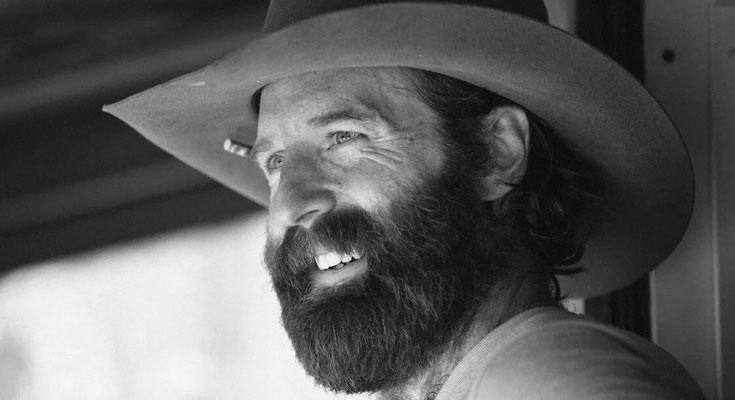By Sean Dietrich, Sean of the South
The nursing home was done up for Thanksgiving. There were stuffed turkeys on bookshelves, twinkly lights on the nurse’s station, and one of the cafeteria workers wore a puritan hat shaped like a traffic cone.
I was here to make an appearance at the book club.
The nurse buzzed me through the front doors. She gave me a name tag.
“They’re ready for you,” she said. “Follow me, please.”
We walked past a hallway adorned with colorful artwork. One wall featured a dozen tempera-paint handprints on individual sheets of construction paper. The handprints were decorated to look like turkeys.
“Art therapy,” the nurse explained. “Our residents just did fingerpainting. I’ll be cleaning paint off the ceiling till June.”
I felt vaguely like I was touring a kindergarten classroom. All that was missing was a portrait of George Washington and the class hamster.
She led me to the garden area where a small group of elderly people sat in a semicircle beneath the North Florida sunshine, waiting for yours truly. They were seated in folding chairs, wheelchairs, and roller walkers.
“Okay,” announced the nurse. “Let’s give today’s guest author a warm welcome.”
When the deafening applause from my six-person audience finally died down, the club meeting was in session.
It bears mentioning that I don’t get many requests for in-person book club visits anymore. I used to, but these days most book clubs prefer internet video calls.
I faithfully fielded questions from club members. The inquiries about my book came in all shapes and sizes.
“Your chapters were too short,” said one man.
“You bounce around topics too much,” said another. “I couldn’t follow your writing.”
Another woman weighed in. “The print was too small. I had a headache five minutes in. I couldn’t finish your book.”
I smiled.
Another lady cheerfully added, “Did you bring any peanut butter?”
And then it was time for lunch.
On my way out, I listened to two old ladies have a vicious argument about something pertaining to—I swear—HGTV. And one club member asked me with complete sincerity what I did for a living.
“You should stay for lunch,” said the nurse.
“Right,” I said, “because clearly, these people love me.”
She laughed. “No, they’re like that with all the authors.”
“You mean there have been other authors? Was there enough of them left to bury?”
“These people grow on you. Come on. Eat with us.”
The aromas of the nursing home cafeteria were reminiscent of a grade school mess hall, and the basic premise was the same, too. You stood in line, then presented your tray to a clinically depressed cafeteria worker behind a sneeze guard who doled out lukewarm chipped chopped ham on a bun. Surprisingly, the food was great.
I had lots of company for my lunch. I was—to put it mildly—the novelty that afternoon.
“We don’t get many visitors,” said one elderly woman. “Can I sit beside you?”
“You look like my son,” remarked another. “Do you know my son? He used to visit me before he got so busy.”
“Hey,” said a persistent white-haired man. “Do you like chess? I used to play chess every day, but I can’t find nobody to play with me no more. Can you play with me? Please?”
When you visit an assisted living facility, if you hang around long enough, and eat enough chipped ham, you will eventually start to hear stories. This just goes with the territory.
The stories will come at you like coal from an industrial barge. You must be ready for this or the tales will overwhelm you. But if you listen, you might actually learn something.
“…I died on the operating table, the doctor said I’d be lucky to live until forty. I’ll be ninety next month.”
“When I was a girl in Texas, nobody wanted to adopt my sister and me after my mom shot herself. But a lady in our town who couldn’t have kids adopted us. She became our mama even though she was Mexican and we were white.”
“…I lost my daughter and my husband on the same day. We had a double funeral, and I wished it had been a triple funeral. I didn’t think I would survive, but God brought me through.”
“…Can I show you a picture of my wife? I have a picture in my wallet. God I miss her.”
“…Cancer tried to kill me three times and didn’t succeed.”
“…The biggest thing I miss about being young is getting dressed up to go do stuff.”
“…Even at this age, I’m still trying to learn to forgive my parents.”
“…I wish I would have been more adventurous when I was younger.”
“…Laughter is the most important drug there is except for my heart meds. Those’re pretty important, too.”
After the cafeteria trays were cleaned, a few residents headed off to their rooms for naps. A few ladies trotted away to chair yoga class while an art lesson started in the rec room.
One happy old man was setting up a chessboard for himself and a partner.
I showed myself to the door. But before I left, one of the elderly ladies handed me a piece of construction paper with a tempera handprint on it.
“This is for you,” she said. “I loved your book. And I just want you to know that you are loved.”
Well.
Not exactly the worst day ever.
Sean Dietrich is a columnist and novelist known for his commentary on life in the American South. He has authored nine books and is the creator of the “Sean of the South” blog and podcast.










